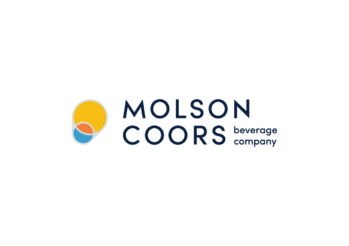Apple’s latest iOS 14.5 announcement regarding App Tracking Transparency is sending shockwaves through the advertising community and big tech alike.
Beginning immediately, with the beta versions of iOS 14.5, iPadOS 14.5, and tvOS 14.5, app owners will be required to ask users for their permission to track them across apps and websites owned by other companies. This change will put the power in the hands of the user in deciding whether they want their behavior tracked using IDFA (Identifier for Advertisers) to inform future ad targeting.
iPhone users can accept or deny access to their data on an app-by-app basis, or change their settings to block tracking entirely. It also requires apps in the App Store to disclose which data attributes are collected about each anonymized user - Apple calls these disclosures "nutrition labels."
(Source: Mashable)
In the same way some food makers dreaded the federal requirement for food and nutrition labeling in 1990, both Google and Facebook are likely fearful of the negative impact this will have on their ability to target with the granularity that their advertisers have become accustomed. When you start to think about the sheer volume of data collected on users of Facebook, Instagram, WhatsApp, Gmail, Google Maps, YouTube, etc. that drives the ability to build, track and retarget audiences; it becomes apparent that these changes will impact their core ad business.
Facebook’s CFO David Wehner may have said it best,
"We're going to have to be providing a prompt asking people for permission to use third-party data to deliver personalized ads. We do expect there to be high opt out rates related to that, and that's factored into our outlook."
If these predictions become reality, and the social and digital advertising behemoths begin to struggle delivering highly targeted audiences, what are the alternatives for advertisers?
Podcast advertising.
While it may not be the first thing that comes to mind, it very well should be. There are over 1,950,000 individual podcasts amassing a total of 47 million episodes. There is literally a podcast for everyone and about everything. If you are looking to personalize your ads with niche interests against targeted communities at scale – podcast advertising is a great way to reach the 116 million MAUs that proudly declare their most personal interests through the content they consume.
According to recent study in WARC, experts have found that “The audience is rabid, attentive, loyal, dedicated, well-to-do, responsive, and growing. Also, the number of podcasts is growing explosively, opening up even more niche audiences to match your own. And the price of entry is much, much less expensive than video.”
In addition to the diverse inventory associated with longtail interests, podcast listenership has skyrocketed in the last 4 years and doubled its user base. When you look at the scale you can achieve across the vast podcasting ecosystem, it could be considered the 2nd largest social platform is the US – second only to Facebook.
(Sources: Statistica.com, CNBC.com, The Infinite Dial 2021)
And there is even another secret superpower that podcast advertising can wield for brands – podcast listeners actually welcome and appreciate ads in their favorite podcasts! According to Edison's Super Listeners 2020 study, 64% of podcast listeners appreciate advertisers for supporting their favorite podcasts and 49% of podcast listeners believe that podcast advertising is the best way to reach them.
As more and more consumers reject tracking across apps for advertising purposes, we should see a rise in contextual targeting based upon implied interests, affinities and lifestyles. There are very few other channels that have already built their entire ad model upon this premise – that by advertising within specific shows – you are reaching people with those niche interests or profiles.
While the advertising and adtech industries work to adapt to the new reality of increased privacy safeguards and regulation, advertisers can immediately shift a greater percent of their investment into podcast advertising without worry that the targeting parameters will be significantly curtailed and their buys will be less efficient.
Link to original LinkedIn article.






